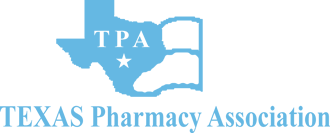Do You Need An Over-The-Counter Medication?
Before reaching the pharmacist to fill a prescription, a patient often walks by rows and rows of over-the-counter medication. Over-the-counter (OTC) drugs are any form of medicine that can be sold to an adult without a prescription. Most treat minor ailments like headaches, colds, sinus, constipation, and much more. However, finding the best one can be difficult with hundreds of brands. A pharmacist can help with that and much more.

The pros and cons of OTC drugs
The most significant appeal of OTC medicine is accessibility and convenience. These drugs can be found at almost any pharmacy, purchased, and used without hassle. OTC medicine is also much cheaper than prescriptions, reducing doctor visits. At the same time, the accessibility and cost also open the door for misuse and dependency. These drugs also carry risks and side effects that patients can miss. Before picking up even a simple painkiller, take a minute to speak with the pharmacist.
Where your pharmacist comes in
Pharmacists are experts in medication and how these medications interact with the body. This experience goes beyond prescription medication. Most pharmacists know the active ingredients in OTC medicine and how each can impact patients. Along with counseling, pharmacists have a range of steps to help patients choose the best medicines.
Pointing you in the right direction
OTC opens the door for self-diagnosis. For example, a patient may choose a drug based on personal research or the wrong symptoms. As a result, the OTC medicine may be incorrect or the wrong dosage. By asking some simple questions, the pharmacist will understand the issue deeper. From there, the patient can get the best brand and dosage.
Avoiding drug interactions
Prescription medications are quite common, especially for those treating chronic conditions. In some cases, a patient may have multiple prescriptions. Adding over-the-counter medicines to the mix could be dangerous. Even interactions with foods or other supplements could be harmful. A pharmacist can quickly review the patient’s current medication and recommend the best OTC drug to avoid dangerous interactions.
Suggesting a prescription
As accessible and cost-effective OTC drugs are, the patient may need more help. In addition, the medicine can be ineffective, opening the door to more severe symptoms. Pharmacists can recommend the patient visit a doctor for a prescription based on an initial assessment. The pharmacist can even provide a prescription directly for specific conditions in some states.
Make it special
Sometimes what a patient need is not readily available, or the patient may be concerned with taking multiple medications. At this point, the pharmacist can create a special drug with compounding. Compounding is the process of combining ingredients or medicines to meet the individual need of a patient. While more expensive than OTC drugs, compounding increases the chances of success. Furthermore, the patient can take the drug safely and comfortably.
Choose the right drug
Choosing the right one is a challenge with the different brands and types available drugs. Grabbing the first thing on the shelf may not solve the problem and even worsen things. The pharmacist is a trusted resource that’s willing to point patients in the right direction. With guidance and recommendations, the patient has the best solution for the problem.
RECENT
ARTICLES



Our Patients Say
We pride ourselves on providing exceptional customer service to our community. Here are a few things that the community is saying about us.
Convenient and quality service. Ive never had my prescriptions filled quicker and the pharmacist took the time to tell me about what I was taking.
Excellent experience! Friendly, knowledgeable staff!
I have been a customer since they opened. Julie and Hiten have both treated me with the utmost respect and have always been ready to take care if my needs with a smile




